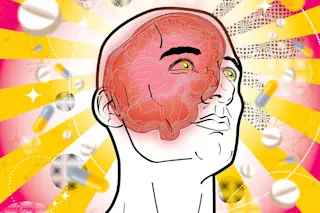Nora Volkow has never been one to blindly accept convention. As a child in Mexico City, she would hunt down the source material cited in her textbooks and spend hours immersed in the intricacies of the Spanish conquest of Mexico or the geography of Indonesia. Diving deep instead of sticking to her assignments was not the best way to get good grades, she admits. But that curiosity began to pay off when she discovered biology. Volkow was named the best medical student of her class in 1981 at the National University of Mexico, and she went on to break new ground in the field of addiction research. As a young researcher at the University of Texas, she was the first to show that cocaine changes the human brain. A controversial idea at the time, it is now widely accepted. Later, Volkow used cutting-edge brain-scanning tools to pinpoint not only the ...
This Is Your Brain On Drugs
Research psychiatrist Nora Volkow revolutionized the science of addiction. Now she's set her sights on reimagining treatment.

Newsletter
Sign up for our email newsletter for the latest science news
More on Discover
Stay Curious
SubscribeTo The Magazine
Save up to 40% off the cover price when you subscribe to Discover magazine.
Subscribe












